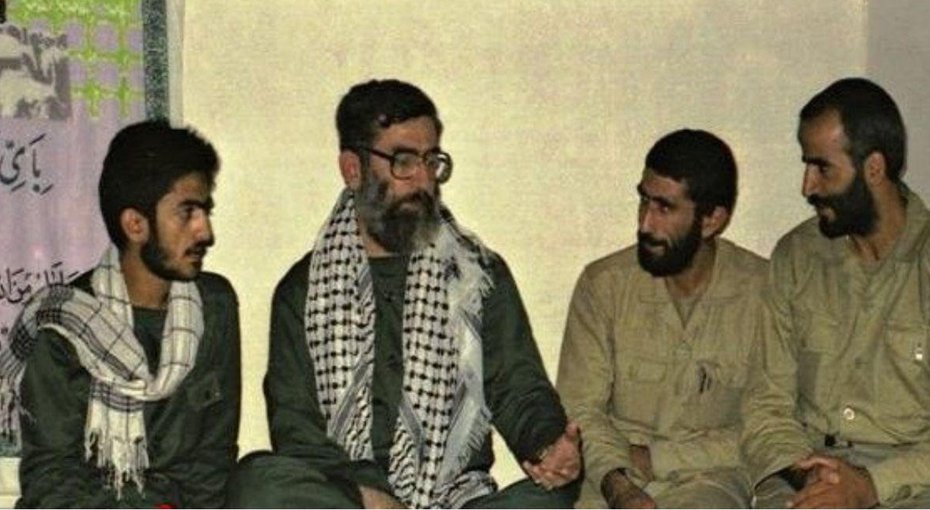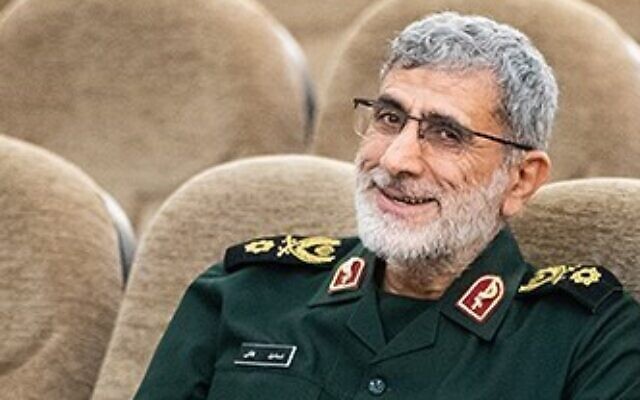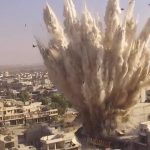Under Qaani’s leadership, there is likely to be greater continuity than change in the Quds Force. But it is doubtful that Qaani, the bureaucrat can emulate Soleimani’s charismatic leadership.
Supreme Leader Ayatollah Khamenei has appointed Ismail Qaani (Ghaani, b. August 8, 1957) as the new commander of the extraterritorial Quds Force of the Revolutionary Guards, following the death of Ghasem Soleimani, who was killed by US forces on January 3, 2020. Qaani is a native of Mashhad in Razavi Khorasan province.
Khamenei’s quick appointment of Ismail Qaani as the new Quds Force commander was designed to give the impression that nothing had changed and not to demoralize Iranian forcesafter Soleimani’s death. However, Qaani, who had been Soleimani’s deputy, has not the same status or popularity within the wider Guards apparatus that Soleimani did, even despite of his frequent, sometimes famous, political addresses. They were very well-rehearsed but less engaging than Soleimani’s speeches. Qaani also has the tendency to focus on the propagandist strategy. However the charismatic Soleimani had represented Iran to the world, a solid reminder of the Islamic Republic’s military and ideological might, and a leader for those who support the regime, both inside and outside the country.Qaani doen’t have such psychological features.
Khamenei passed over qualified figures including Gholamali Rashid and Mohammed Kowsari, among the first generation of Guards commanders, and Ali Fadavi, from the next generation, to select Qaani. So such appointment can rise internal hidden disputes and silently split elites of IRGC.
Qaani started his career in the Mashhad unit was deployed in Iran’s Kurdistan province to suppress Kurdish separatists. Later his unit was relocated to Khuzestan province to defend Iran against the invading Iraqi military. Qaani, who served as division commander Qalibaf’s second in command in the 5th Nasr Division, got to know a young Qassim Suleimani, who was the chief of the 41st Sarallah Division from Kerman province. Their friendship probably started in March 1982.

Qaani was selected, along with Nour-Ali Shoushtari and Mohammad Baqer Ghalibaf, who later became mayor of Tehran, to form a Guards division from Khorasan province in December 1982. He was later appointed as head of the Fifth Nasr Division. After the war, in August 1988, Mohsen Rezaei, commander of the Revolutionary Guards at the time, appointed Qaani as the deputy commander of the Guards’ ground forces in Mashhad.
Immediately after the war Qaani was promoted to deputy of the IRGC Ground Forces. According to doubtful indormation he was engaged in the IRGC’s operations against drug cartels infiltrating Khorasan province from Afghanistan. It is just as likely that Qaani and Suleimani cooperated with each other in their support to the United Islamic National Front for the Salvation of Afghanistan, also known as the Northern Alliance.\ When Soleimani was appointed chief commander of the Quds Force, sometime between September 10, 1997 and March 21, 1998, he probably appointed Qaani as his deputy. In this position he was responsible for Guards Corps’ activities in Afghanistan, Pakistan and Asian Republics. So Qaani focused on Iran’s eastern borders. As Soleimani’s deputy he attended to the bureaucratic and administrative affairs of the organization.
Qaani is familiar among Iran’s allies in the Middle East, and that may have been one of the reasons for his appointment, his experience in Khorasan may be another.
Untill recent appointment he played a key role in overseeing financial disbursements and weapons shipments to Hezbollah and IRGC-QF elements in both the Middle East and Africa, particularly the Gambia.
The appointment of Qaani may be able to achieve the impact the Supreme Leader wants: the appearance of continuity, especially considering the fact that Qaani has the same approach to key aspects of commanding that Soleimani did. He also believes that commanders should take a lead role in combat, and not lead from the back. Qaani’s specific experience in operations in Afghanistan and Pakistan may also mean he is well placed to drive the Guards’ agenda as set out by the Supreme Leader.
The Quaani’s appointment took place in crisis environment, so he’s the person who is up to date and doesn’t need time to study the situation and form C2 system. Khamenei may well see an advantage in appointing a commander who probably in the beginning will copy the management style of Soleimani.
With the appointment of Qaani as the commander of the Quds Force, a new raft of operations could be ushered in, activities which may, in practice, increase the morale and activities of the Guards, but will, at least for now, no longer wield the former power of propaganda it once did.
However in 2016 Qaani made a statement,claimed that “Whenever Iran succeeds in Syria, and the Americans feel they cannot achieve their goals through military means, they resort to negotiations, and whenever they realize that they can reach their aims militarily they deny negotiations, which was evident when one of our brothers was killed by a $100 thousand missile in Syria,”. So this means that Qaani operates with category of negotiations. So, it’s possible that he could be mediator in dialog with Iranian authorities.




